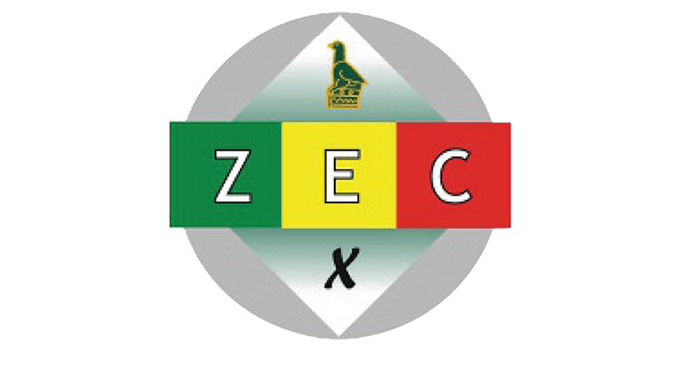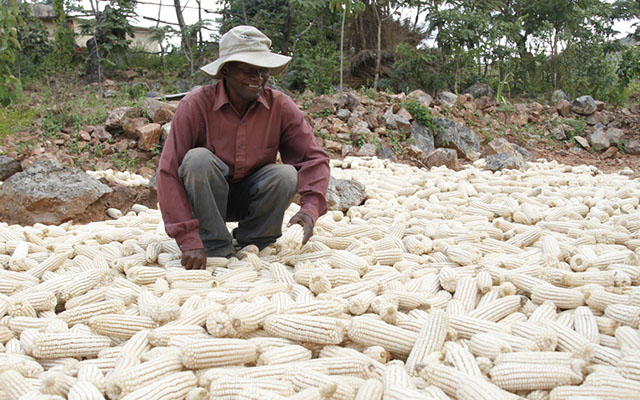August 23: Chamisa’s attempt to make China an issue futile

Lovemore Chikova Development Dialogue
Those who have cared to listen to CCC leader Nelson Chamisa speaking at most of his campaign rallies so far could have easily noticed an emerging trend, the criticism of Chinese investments in Zimbabwe.
In fact, Chamisa has embarked on a smear campaign against China and Chinese investments in the country, making this part of his campaign strategy ahead of the August 23 elections.
He has been making some unfounded statements with regards to these companies’ operations, misleading people about the relations between Zimbabwe and China.
Chamisa made China an election issue at his party’s election campaign in Gweru, and at subsequent rallies such as those in Silobela, Gutu, Mberengwa and Beitbridge.
But this did not start now.
Chamisa made criticism of Chinese investments in Zimbabwe part of his campaign strategy for his campaign trail for the 2018 harmonised elections.
It did not work, and this clearly indicates that by continuing with the same message now, Chamisa has no capacity to learn from the past.
His attack on Chinese investments has no basis and is unwarranted.
But there are reasons to explain why he continues on this unfruitful path he is charting as a result of being agitated by the successes scored by Zimbabwe through these investments.
In fact, by opposing the Chinese investments, Chamisa is demonstrating his other side that is anti-development and against progress being made by the country in its developmental agenda.
When Chamisa puts on his political goggles, he sees progress being registered by the Second Republic as derailing his chances of being elected.
As result, he tends to go for every other project that is contributing to the success in development being achieved by President Mnangagwa and the Second Republic.
This may appear as a mere criticism of the Chinese investments by Chamisa, yet underlying that is his desire to discredit the Zanu PF government.
The hope is that his utterances against the Chinese investments could cloud the view of voters against the major gains achieved by the country as a result of the work being done by the Chinese companies to help uplift Zimbabwe.
Zimbabwe now has sufficient electricity as a result of the construction of two more power generating units at Hwange Thermal Power Station.
Units 7 and 8 are now fully functional and contributing more than 600MW to the national grid, with the other existing units being refurbished so that they increase their power generation capacity.
The two units were constructed at a cost of about US$1,5 billion by a Chinese contractor, bringing a lifeline to the thermal power station and relief to Zimbabweans.
This alone means that Chamisa has lost what he thought could have been part of his campaign message – load shedding.
Obviously, he had thought that a message to end load shedding could have resonated with his targeted audiences, but he has been let down by the addition of the electricity from the two units at Hwange.
Chinese companies have also invested heavily in not only mining, but setting up production plants to add value to the minerals, especially lithium.
Just recently, President Mnangagwa commissioned a production plant at Zhejiang Huayou Cobalt’s Arcadia Lithium Mine in Goromonzi.
Many other Chinese mining companies have already set up such production plants or are working on constructing them.
This means that the companies create more employment and increase the returns for Zimbabwe by exporting processed lithium and other minerals.
This, too, closed the gap for Chamisa’s supposed message on value addition and beneficiation of minerals.
Chinese companies have been doing wonders in improving Zimbabwe’s aviation sector, with Jiangsu International reconstructing Victoria Falls International Airport a few years ago.
Since it was commissioned, Victoria Falls International Airport has been attracting major international airlines, thereby drastically changing the face of tourism in Zimbabwe.
Tourists can now fly directly to Victoria Falls, after the premier destination was made easy to access because of the new-look airport.
Then just a few weeks ago, President Mnangagwa officially commissioned the expanded Robert Gabriel Mugabe International Airport whose works were done by Jiangsu International.
The airport is now modern and can complete with other airports in the world in terms of aesthetic and services, which makes it enjoyable for travellers to use the airport.
The imposing new Parliament Building in Mt Hampden is another signature project carried out by the Second Republic in partnership with China.
China has also been in partnership with Zimbabwe in the construction of some dams for the provision of water for irrigation and other purposes.
All these milestones have been a cause for discomfort for Chamisa and his party, hence the criticism being directed at them.
Through the various projects in Zimbabwe, China is helping Zimbabwe bust sanctions imposed mainly by the United States.
This is why the United States has also been drawn into criticising Chinese investments in Zimbabwe.
To demonstrate is unholy alliance, the nominee for the United States Ambassador to Zimbabwe post, Pamela Tremont, claimed in March 2023 that Zimbabweans were acutely aware that Chinese investment in the country did not really benefit them.
She had been asked by Senators how America could better counter Chinese influence in Africa and growing investment by the Asian nation.
Tremont said: “Yes, Zimbabwe and China have a long-standing relationship that goes all the way back to Zimbabwe’s war of independence. I think the difference between Chinese investments in Zimbabwe and perhaps other places in Africa is the US investments of US$4,5 billion that we have invested in Zimbabwean people, have been for the people.
“The Parliament building does not really necessarily benefit Zimbabwean people the way United States investment does. We require that our companies do not pay bribes, we have anti-corruption legislation that we enforce from back here at home. We highlight and impress our own companies to enforce local labour laws and abide by the local laws.
“I haven’t been to Zimbabwe in a very long time, but my sense is the Zimbabwean people are keenly aware that they are not benefiting from Chinese investment in Zimbabwe and I think that’s an important point to make.”
From these utterances, it is clear that the Chinese investments in Zimbabwe are hindering the success of the sanctions by contributing to the country’s economic development.
And President Mnangagwa, while officially commissioning Hwange 7 and 8 units made it clear that sanctions had failed to hinder Zimbabwe’s progress.
“Despite the sanctions imposed by the West, we still have friends who stood with us and that friendship is becoming a reality as we commission Hwange 7 and 8 units. These (the Chinese) are our friends,” he said.
“Those who imposed the sanctions could not believe that today we could be developing our country at the pace we are moving.”
Three reasons stand out why Chamisa, in alliance with the US, has been criticising Chinese investments in Zimbabwe on his campaign trail.
These are:
- CCC has been hoping that the sanctions imposed on Zimbabwe would cause economic problems that could turn the voters against the ruling Zanu PF government, and investments by China are seen as dashing these hopes
- The desire by the US to checkmate the influence of China in world affairs and that investments from China are assisting Zimbabwe bust illegal sanctions imposed by the US and some western countries.
- China has been acting as a guarantor of Zimbabwe against foreign aggression, especially from the United States, by deploying its veto power at the United Nations. The aim is then to weaken this alliance and make Zimbabwe vulnerable.
At the centre of his campaign in 2018, as is the case now for the August 23 harmonised elections, Chamisa’s campaign has been anchored on threats to expel Chinese companies from Zimbabwe and cancel all bilateral agreements signed involving China.







Comments